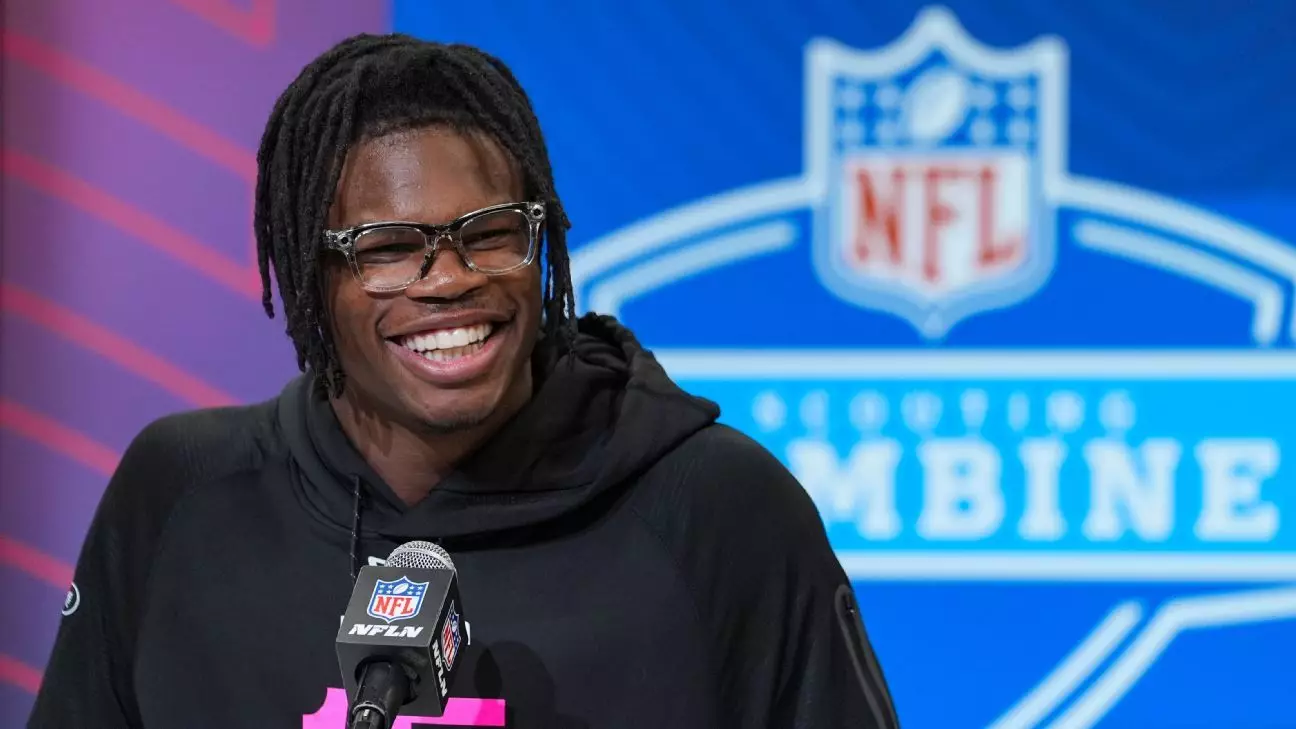As the NFL draft approaches, the anticipation around Travis Hunter transforms into a conversation that transcends mere statistics, accolades, and drafting order. Hunter, widely recognized not just as a two-way star but as a visionary athlete, embodies a unique breed within the sport. His insistence on maintaining dual responsibilities—playing both wide receiver and cornerback—highlights a critical issue in contemporary football: the need for teams to adapt and embrace the versatility that modern athletes possess.
Hunter’s confidence is not merely a reflection of his accomplishments; it emerges from an intrinsic love for the game itself. “It’s never playing football again,” he definitively claimed, underlining how crucial his dual-role is to his identity as a player. This isn’t just about winning games; it’s about preserving the essence of what football is to him. The very notion that an NFL team might attempt to pigeonhole him into one position is not only outdated but also deprives the league of harnessing his full potential.
The Modern NFL: Embracing Versatile Athletes
Today’s NFL is evolving. With players like Hunter emerging, it’s evident that the future of football lies in a holistic understanding of athletic skill sets. Hunter’s unprecedented accomplishments make a compelling case for his dual-threat capability. Being the first player in decades to have over 500 receiving yards while also snagging four interceptions speaks volumes about his exceptional skill. But even beyond the numbers, Hunter’s ability to dominate on both fronts illustrates how the traditional understanding of player roles must adapt.
Cleveland Browns general manager Andrew Berry’s acknowledgment of Hunter’s capacity to play both ways, with an emphasis on his effectiveness as a wide receiver, should serve as a roadmap for other franchises. “He can play both, I think that’s what makes him special,” Berry remarked. This recognition hints at a tantalizing possibility for the NFL: a league that harnesses the unique skills of players who are not bound by conventional definitions of their roles.
The Consequences of Limitations
If NFL teams persist in confining their athletes to simplistic roles, they risk losing out on game-changing talent. A mindset that restricts athletes like Hunter could prevent the league from harnessing the unpredictable, electrifying moments that arise when players are allowed to use their full range of skills. The industry is notorious for clinging to conventional paradigms, often prioritizing specialization over versatility.
Imagine the implications if Hunter were forced to choose between offense or defense. Not only would it stifle his personal growth and joy, but it would also deny fans the spectacle of a true dual-threat athlete. The league should learn from the flexibility displayed in various sports around the world, especially in disciplines where players are required to hone multiple skills, enhancing both their own careers and the entertainment value of the game.
The Competitive Edge of Versatility
Hunter’s mindset—rooted in confidence and a competitive spirit—illustrates the mental fortitude required to break the norm. “I can do whatever I put my mind to,” he staunchly stated, revealing an unyielding determination that often propels athletes into greatness. By embracing a versatile approach, Hunter represents more than his specific talents; he embodies the very essence of modern sports where adaptation and resilience are paramount.
Moving forward, the NFL must heed the lessons presented by Hunter’s storied rise. The potential to redefine playing styles and roles rests not solely in acknowledging talents like his but in actively paving the way for their utilization. Flexibility should not merely be a buzzword for franchises but a fundamental truth woven into the fabric of their strategies.
In the rapidly changing landscape of football, the journey of Travis Hunter urges us all to reflect. Will the NFL embrace the complexities of modern athleticism, or will it cling to antiquated notions that limit potential? As Hunter aptly stated, when the call comes on draft night, we’ll see if teams are ready to unlock the full spectrum of talent that transcends traditional boundaries.



Leave a Reply